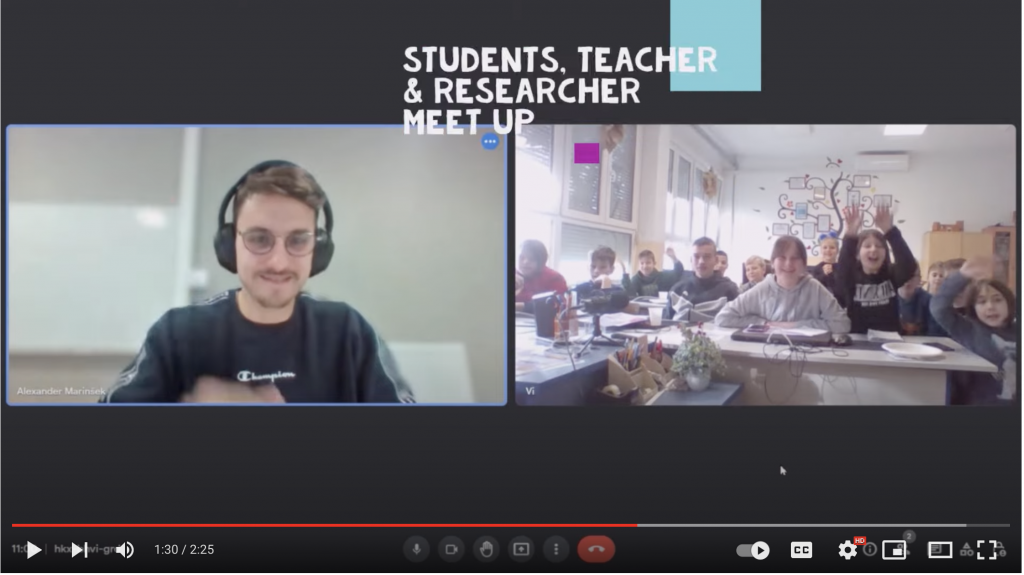Alexander Marinšek (MINTS ER15, KU Leuven, Belgium), in collaboration with Dalia Kagerhas (Eugen Kvaternik elementary school, Velika Gorica, Croatia) had their proposal “Galileo XR: finding the forgotten scientist” make it to top 3 out of 100 proposals for the Science is Wonderful! competition.
“Continuing on from the great success of our annual science fair, which brings researchers into contact with teachers and students, Science is Wonderful! launched a new initiative called Expertiment for the Classroom, expanding these opportunities to anywhere in Europe. This fun new project helped connect MSCA researchers with motivated teachers, allowing them to team up together and create new learning resources for our online catalogue.
Over 500 researchers and teachers took part, with over 100 excellent proposals submitted to our jury, an international and varied group to whom we are very grateful for their participation and time devoted to the project.
Without further ado, let us present the winners of the trips to Brussels, including a visit the Science is Wonderful! fair on 16-17 March!
In no particular order, we have:
- The Bio-Escape Room, an interactive game designed to introduce students to cell biology and medical technology, from Luis Cerrajero de la Cruz, teacher at Cepaim, Madrid, Spain, and Sahba Mobini, an MSCA researcher at the Consejo Superior de Investigaciones Científicas (Spanish National Research Council) Congratulations!
- Galileo XR, an exciting introduction to the scientific method for children of various ages, from Dalia Kager, teacher at Eugen Kvaternik elementary school, Velika Gorica in Croatia, and Alexander Marinšek, an MSCA researcher at KU Leuven, Ghent, Belgium! Congratulations!
- And last but not least, Blood Typing: presented in the form of a Crime Scene Investigation, a role-playing game that teaches children how blood analysis can contribute to the information-finding process, from Katerina Kapodistria a teacher at Ralleio Geniko Lykeio Thileon Pirea, Athens, Greece, and Aline Hatem, an MSCA researcher at the Centre national de la recherche scientifique (French National Centre for Scientific Research). Congratulations!”
All three proposals will now be professionally produced, translated into the EU’s 24 official languages, and added to our catalogue of online activities.”
Summary of the Galileo XR proposal:
Elementary and high school students learn about numerous physical phenomena that make up our everyday life. However, physics is most often perceived as boring and only a handful of students remember what they learned in the classroom. Schools nowadays have the necessary equipment, such as micro:bit single board computers (SBCs), to digitalize physical experiments and make them more attractive to students. Due to limited teacher training and learning material availability, these modern tools are unfortunately often left out of the physics class. In this paper, we describe Galileo XR – a learning activity, ranked among the best three proposals at the Science is Wonderful! 2023 competition, wherein students’ study everyday physical phenomena in a fun and inclusive way. The gamified scenario guides them through 6 workstations, corresponding to 6 physical phenomena, where they are embraced to make certain observations and record measurement data using different sensors on the micro:bit SBC, for which they are rewarded with encrypted clues regarding the final solution. Students are motivated to apply the scientific method throughout their quest to find the forgotten scientist, Galileo Galilei.


